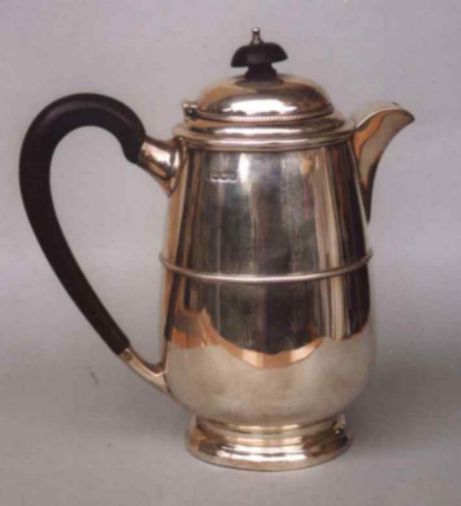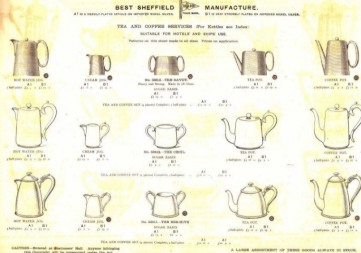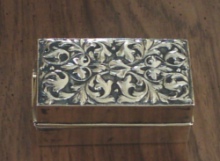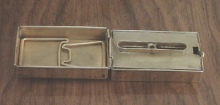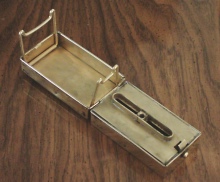 newsletter # 9 January 2005
newsletter # 9 January 2005www.ASCASonline.org
email: silverassociation@yahoo.it
December Newsletter requested members' solutions to some unresolved questions. Fred Sinfield solves the 'dilemma' about coffee pot ? or hot water jug? of our Walker & Hall vessels.
Hallmarks of Maurizio Perota covered jug with Berthold Muller, London importation mark of 1910.
Dorothea Burstyn informs that all marks shown are used by the
Neresheimer company, Hanau.
Hymie Dinerstein writes: this is a heater for curling tongs. the bottom part had a wick and burning alcohol . the two wires were opened and the curling tongs balanced on them with the curling part over the wicks which were then lit and the curling tongs heated to the desired temperature and then used to curl Lady's hair by the lady's maid who would be travelling with her. This box would have been in a lady's travelling case with all the other bottles, brushes, combs and mirror and what have you that one would expect a lady to have with her when travelling at these times. Quite often, the insides are removed and the box is sold as a box.Tom Guarrera writes: .....I'm pretty sure that Mr. Gerhart's item is a device for heating a hair curling iron, a burner head would have attached to the sliding mechanism.....Bill Kime writes: I was interested to see photographs in the December 2004 newsletter of Gerry Gerhart's curious box, which is very similar to one that I sold just recently. The box that I had was not quite as heavy, at about 7 oz.; it was silver-gilt and quite plain with only an engraved cipher on the lid; hallmarks for London, 1899, made by Drew&Sons. It had the appearance of being perhaps part of a travelling toilet set, to me at least, and so, for want of a better idea, I called it a curling tong heater. In fact, I don't know if that's actually its intended use, it was just a guess, but no other ideas were offered and nobody argued otherwise. It'll be interesting to see if any other members can shed some light.
Dorothea Burstyn writes: ....question by Don Richardson, in Austria we call this object a "Weinheber" - a container from which to dispense wine, a very common household item....Mario Rosario Bonello writes: ...with reference to Don
Richardson' s photo of an unusual object, I think that this is a wine
decanter or container. The wine is poured inside and the wine glass is
filled from the glass container when pressed against the nozzle/tap;
pressing the nozzle at the bottom of the glass container releases the
wine.
|
||||||
|
